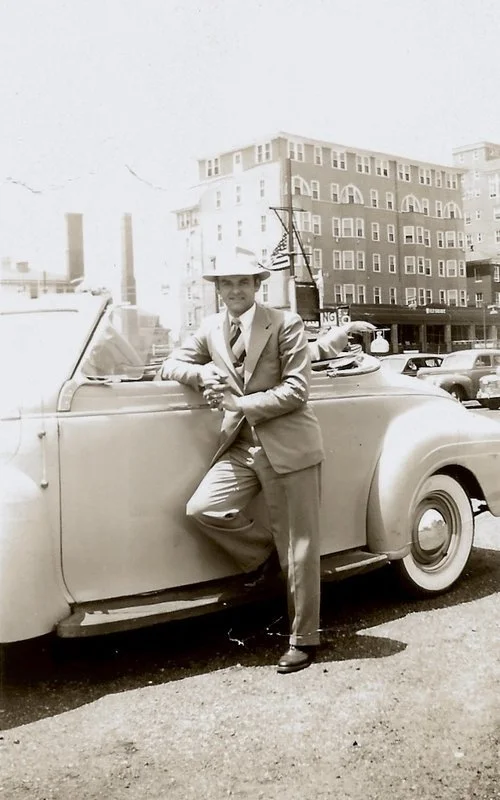How My Dad Lost His Job On The Suicide Hotline
Today’s the day we reminisce about our fathers. So it’s as good a time as any to get this out in the open: Mine was once fired as a volunteer on a suicide hotline.
Too “judgmental,” they said.
Chew on that for a minute.
Apparently some intuitive person in the church basement got to know my dad and realized – most likely in a moment of exquisite horror – that rather than talking people off a ledge, my father was more likely to lose his temper and give them a metaphorical push.
He couldn’t help himself. The guy whose favorite sayings included “stop feeling sorry for yourself,” “fight your own battles,” and the all-inclusive “baloney” was not equipped to help despondent people in times of crisis.
Sure, he’d been great at getting his children to mow the lawn, at browbeating store managers into refunding faulty merchandise and at training the Irish setter to roll over, but those life skills were not the ones needed to work with fragile people.
My father had many endearing qualities. Patience wasn’t one of them.
We never knew if Dad was flagged during some psychological testing or if something happened during a call. I’ve always hoped it was the former.
For the record, I tried to talk him out of it.
The hotline was part of a mid-life crisis he was going through, long before anyone called these episodes mid-life crises.
All we knew was that when my father hit his 50s, his starched personality began to soften.
Not completely, though.
He still relentlessly badgered my chain-smoking mother to quit cigarettes, reminding her that he had kicked a two-pack-a-day habit. Cold turkey.
“It’s easy,” he’d say, with no acknowledgment of the problems of addiction. “Just throw them away.”
In other ways, however, he was clearly evolving.
First, he grew a beard. Next, he bought a motorcycle. Then, when I came home from college, I spied a bottle of Mateus in the refrigerator.
“He drinks now?” I asked my brother.
“Yep, can you believe it?”
No, I couldn’t. My father had been a teetotaler for as long as I could remember.
The alcohol seemed to make my workaholic father more fun-loving. But there wasn’t enough booze in the world to change Tough Love Tom into a suicide intervention counselor.
Still, he announced his plans over dinner one night.
A position on a church-run suicide hotline was calling him, he said. He’d always wanted to help people. He had some spare time. He couldn’t wait to get started.
My brother and I exchanged horrified glances. My mother lit a cigarette.
We all knew this would not end well.
“Are you sure you’re the right person for this?” I asked tentatively. “I mean you were always telling us to ‘snap out of it’ when we were sad. When we cried, you told us you’d give us something to cry about. That might work with kids, but I’m not sure you’re supposed to say that to someone who’s depressed.”
“That’s why we have training,” he replied, taking a sip of his cheap Portuguese wine. “I thought you’d be proud of me.”
“I am proud of you, but I fear for the callers,” I said, adding the last part under my breath.
For the next few weeks, my father was busy with his hotline duties. There were classes to take, mock calls to rehearse. He was out nearly every night.
Then, suddenly, he was free again. Watching TV and teaching the dog to fetch.
We asked what happened to the hotline position and he refused to talk about it. My mother finally told us on the condition that we never mention it again.
He’d been sacked.
“They told him he was too ‘judgmental,’ ” my mother whispered.
Thinking back on it, I can only imagine what my well-meaning-but-completely-unsuitable father muttered on his way out of that church door.
“Baloney.”


